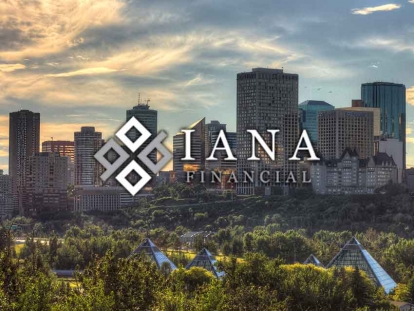 This is Part 1 of a series on Riba in Islam. Part 2 will discuss the practical implications as well as alternatives for Muslims living in Canada today.
This is Part 1 of a series on Riba in Islam. Part 2 will discuss the practical implications as well as alternatives for Muslims living in Canada today.
Apr
Of all the things that observant Muslims try to avoid, interest is the most challenging. It seems impossible to get by in today's world without it. How do you finance your education, buy a home, start a business or get out of a jam when you can't borrow money with interest? What does Islam say about it? Is all interest bad? What is interest for? How does it work? What does it do to people and society?
The Qur'an and hadith are very clear on the prohibition of interest. The Qur'an says that God "destroys interest and gives increase for charity" (Qur'an 2:276); that those who return to dealing in interest are "companions of the Fire; they will abide eternally therein" (Qur'an 2:275); and that they will face "a painful punishment" (Qur'an 4:161) and "a war from God and His messenger" (Qur'an 2:279). According to the hadith, "the receiver and the payer of interest, the one who records it and the two witnesses to the transaction. They are all alike [in guilt]" (from the Compilations of Muslim, Tirmidhi, and Musnad Ahmad).
Living in a world where interest is common practice and almost impossible to avoid, one wonders, why is the Quranic prohibition so strong? What makes it the one thing that warrants war against God and His Prophet? What's the big deal about interest?
First of all, what is interest?
Interest is the additional amount that the borrower returns to the lender beyond what he initially borrowed. For example, if you borrowed $1000 at 5% interest per year for one year, you would owe $1050 next year. That extra $50 is interest. The original $1000 is principal.
Is interest that we see today the same as riba that's mentioned in the Qur'an?
The Arabic word in the Qur'an that's translated to interest in English is riba. Some have argued that the riba mentioned in the Qur'an doesn't include regular interest rates that we see today but rather to excessively high amounts of interest, also referred to as usury. In the Qur'an, however, immediately after the threat of war against God and His Prophet, there is clarification, "But if you repent, you may have your principal" (Qur'an 2:279). Based on this, the consensus of the scholars has been that getting your original money back is fine, but any amount above that is considered riba.
In fact, the scholars say that any loan agreement that brings benefit to the lender is considered riba. So not only is the lender not supposed to get extra money back from the borrower in exchange for giving the loan, he's not supposed to get favours from him either (unless they were in the habit of doing each other favours before the loan was made). Basically, the loan should not be a means through which the lender gets advantage from the borrower.
What's the purpose of interest?
The earliest evidence of interest-based lending come from Mesopotamia over 5000 years ago. Being a fertile land without much in the way of other resources, trade was essential to their society. They would export foodstuffs, leather and wool and import other essentials such as stone, wood and metal. If someone had money or goods to trade, they would lend it to a merchant in the caravan on the condition that the merchant would give it back to them with interest. This extra would be the lender's way of getting his share of the profit that the merchant got from his business.
Interest provided an incentive for those who have extra money to lend it out to those who needed it.
While it initially began in commercial loans (i.e. loans to merchants who could buy and sell products with it and pay back the interest with profits), the idea spread to consumer loans. In times of hardship, people who didn't have enough to get by would also take loans. While these loans were consumed and not used in commerce, to the lender it was the same. If he was going to get interest from a loan to merchant, he was not going to loan money to a peasant whose crop failed without taking interest from him too.
Other prohibitions on interest
Muslims are far from alone in their prohibition of interest. Interest is also prohibited in the books of Judaism and Christianity. In Exodus, the second book of the Torah and the Old Testament, it says: "If thou lend money to any of My people, even to the poor with thee, thou shalt not be to him as a creditor; neither shall ye lay upon him interest" (22:24 (25)).
The First Council of Nicaea, in 325, forbade clergy from lending money in interest even at rates as low as 1% per year. In time, this prohibition was spread to commoners. By the eleventh ecumenical council in 1179, it was declared that people accepting interest on loans could not even receive a Christian burial. Four hundred years later, Pope Sixtus V condemned the practice of charging interest on loans as "detestable to God and man, damned by the sacred canons, and contrary to Christian charity."
But why? What makes it so bad?
The most commonly cited reason for the prohibition on interest is that it's unjust and oppressive. It's the rich who have money to lend. Being able to charge interest on those loans allows them to automatically get richer on the backs of those who need money.
Plato condemned those who charge interest on loans, for "planting their own stings into any fresh victim who offers them an opening to inject the poison of their money; and while they multiply their capital by usury, they are also multiplying...the paupers."
Aristotle added to his teacher's arguments, saying that charging interest was unnatural. He argued that the purpose of the economy was to satisfy physical needs such as food, shelter and clothing. The production of goods to fulfill these requirements, such as farming and manufacturing, was a "natural" form of money making. While money is used to facilitate transactions, lending money on interest, however, produces nothing to satisfy real needs.
Effects of interest on society
The issues aren't just personal or theoretical, however. When we look at the history of interest-based lending, we see that the problems it has caused in society have been widespread and real.
In Mesopotamia, peasants in financial need would get loans from wealthy merchants on collateral. If they weren't able to pay back the loan with interest, the collateral would get repossessed. It would start with grains, sheep, furniture, then move on to fields, houses, property and even family members or the borrower themselves. In theory, the borrowers could get the collateral back once they repaid the loan with interest, but for obvious reasons this became more and more difficult as their possessions, property, family members and even their own personal freedom were taken away.
In years of bad harvests, large portions of the peasantry would fall into debt peonage and families would be broken apart. Fields would lay abandoned as farmers left their homes for fear of repossession. The problem became so severe that Sumerian and Babylonian kings in Mesopotamia began to periodically announce debt amnesties or "clean slates". All outstanding consumer debts would be declared null and void, all land would be returned to its original owners and all debt-peons were allowed to return to their families.
This principle of the clean slate is even institutionalized in the bible with the declaration of a Jubilee every 50 years. In a Jubilee year, all property should return to its original owner, and those who, compelled by poverty, had sold themselves as slaves to their brothers, should regain their liberty (Leviticus 25:10).
If a system has a tendency to run itself into the ground so regularly that a periodic reset has been institutionalized in the bible, one has to start questioning the fundamentals behind it.
Is interest just a problem in times of bad harvests or is there something else at play?
Particularly in a commercial loan, lending on interest is meant to be a mutually beneficial arrangement. The borrower gets capital to invest in his business, and then when he's made his profit, he can return the loan to the lender and give him profit in the form of interest as well.
Imagine what would happen if this cycle of lending and returning with interest repeats itself in an economy where the money supply was fixed, as it would be if the currency were made of gold or silver.
As long as the loans are returned with interest, the lenders would get wealthier and wealthier. With more money, they are able to make more loans and grow their wealth even faster. However, as more and more wealth is concentrated in their hands, there would be less left to circulate with everyone else. Borrowers would be competing for a shrinking pool of currency with which to repay their loans. Eventually, there comes a point where regardless of hard work and personal virtue, some borrowers will default on their loan because the money isn't there.
From this perspective, the problem of interest appears to be an issue of math. The more that one group (the lenders) have, the less is left for everyone else. This is particularly true when the money supply is fixed.
Inflation and constant growth
Around the world today, however, we don't use gold and silver as currency and we don't have a fixed money supply. Currencies today are fiat money, meaning that they're not backed by any commodity but instead by the government that issues it.
The central bank controls the amount of money in the economy and generally aims to increase it at a certain rate (i.e. keep inflation at around 2%) to keep the economy going and growing.
This seems to be a better alternative than the situation in Mesopotamia or the mathematical problem of people defaulting on loans where there's a fixed money supply. But what are the implications of a money supply that grows year after year? We do this to keep the economy growing, but Is it possible to have constant economic growth in a planet with limited physical resources? Could it be that this need for constant growth is the source of the environmental problems we see today?
If constant growth is a problem, what happens if we stop that growth? For one, if the value of real goods and services in the economy does not keep up with the increase in the money supply, we get inflation. The more money is added to the economy, the less value it has. Every year you'll notice that rent goes up, groceries are just a little more expensive, and the bus fare increases. The new money continuously dilutes the value of existing money, causing prices to go up and making your savings worth less and less each year. Inflation works like a hidden tax on every person holding currency.
We’ve gotten ourselves into a situation where we’ll either have too many people defaulting on loans, inflation that erodes the value of savings or constant growth that leads to environmental problems. It wouldn’t be hard to argue that all of these are happening right now.
From the earliest records of interest-based lending 5000 years ago in Mesopotamia, it has caused problems for individuals, families and even societies. This is likely why it has been so harshly condemned by Islam, other religions and ancient philosophers. Looking at the math, inflation and the environment, something as seemingly benign as getting profit from a loan has very widespread implications.
Now what do we do about it?
First of all, just learning about a problem is an important step towards addressing it. It's much easier to deal with an issue once it's discussed in the open. This article hopes to begin that discussion. So comments, questions and ideas are most welcome and wanted.
Second, Muslims in the past as well as today have developed and are providing alternatives to interest-based lending. Part 2 of this series will start discussing some of those alternatives.
This is Part 1 of a series on Riba in Islam. Here are Part 2 - Beneficent: Empowerment Through Interest-Free Debt Relief, Part 3 - Ijara CDC's Halal Mortgage - How Does It Work?, Part 4 - Iana Financial Revives the Tradition of the Benevolent Loan. Future parts of the series will continue to discuss practical implications of the Islamic prohibition on interest and alternatives for Muslims living in Canada today.
To make sure you don't miss the rest of the series, sign up for the Muslim Link Snapshot and get Muslim Link articles delivered to your inbox every month.
This article was produced exclusively for Muslim Link and should not be copied without prior permission from the site. For permission, please write to info@muslimlink.ca.















